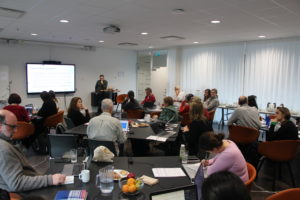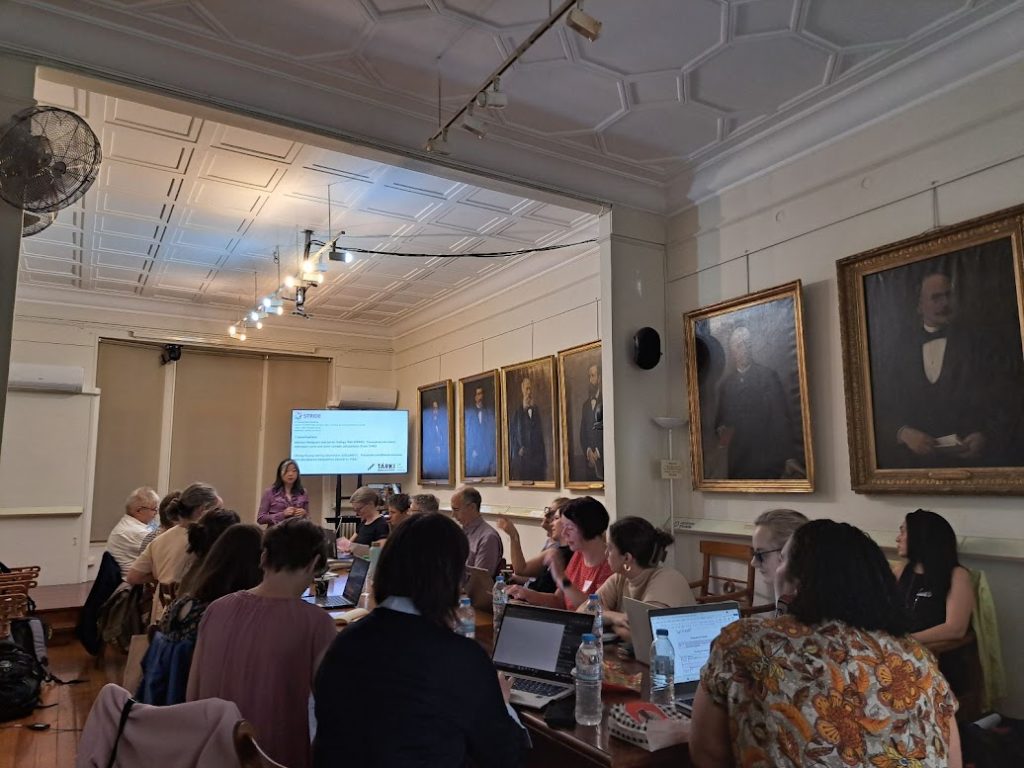How do we work on it?
The Roehampton Team, including Professor Bryony Hoskins, Post-doctoral researcher Khuyen Dinh and research assistant Sofia Ferrer, has completed the first draft of the systematic review for the STRIDE Project. This systematic review seeks to evaluate the effectiveness of early childhood education interventions on the reduction of educational inequalities amongst children facing multiple disadvantages and their peers.
To determine the effectiveness of early childhood education interventions on the mitigation of educational inequalities, the Roehampton team began this systematic review by screening articles on Google Scholar. The team chose Google Scholar due to its broad and comprehensive coverage of academic literature compared to other databases. Throughout the initial screening process, the team developed search terms and screening criteria, limiting articles to those that most effectively answer the research question. As such, articles were filtered by date, ensuring the most recent publications and educational interventions were included in the systematic review, language, as the Roehampton Team did not have the capabilities to assess non-English articles, methodologies, centring longitudinal and quasi-experimental designs to sufficiently evaluate effectiveness, and sample, focusing on targeted interventions serving migrants, minority groups, and children in families with low SES status.
Following the implementation of selection criteria and the initial screening phases, 29 articles were selected for analysis in the systematic review. These articles were organised thematically according to effectiveness measures, including academic achievement, behavioural measures and retention outcomes. To organise articles further, the main themes were divided into subthemes which explored intervention and evaluation type, such as curriculum-based interventions, familial and community-centred interventions, initial evaluations and long-term evaluations.
What are the initial results?
Initial findings from the systematic review reveal positive insights regarding the effectiveness of early childhood education interventions on the mitigation of educational inequalities. Evidence suggests that the mere implementation of early childhood education programs in disadvantaged communities works to mitigate educational inequalities. According to the findings, these programs are particularly effective when developed from research and data-driven models that have proven successful for particular disadvantaged groups. Familial and community-based interventions are prevalent throughout the literature and reveal evidence of effectiveness, especially when these interventions included both local and centralized components, such as centre-based care and home-visitation programs. Additionally, all of the interventions which were evaluated according to retention measures resulted in some positive long-term effects in aspects like higher education, crime, familial outcomes and welfare dependency.
The Roehampton Team is looking forward to feedback on the first draft of the systematic review to further develop and enhance its findings.
Photo by Artem Podrez: https://www.pexels.com/photo/person-holding-white-ipad-near-macbook-pro-5716032/












